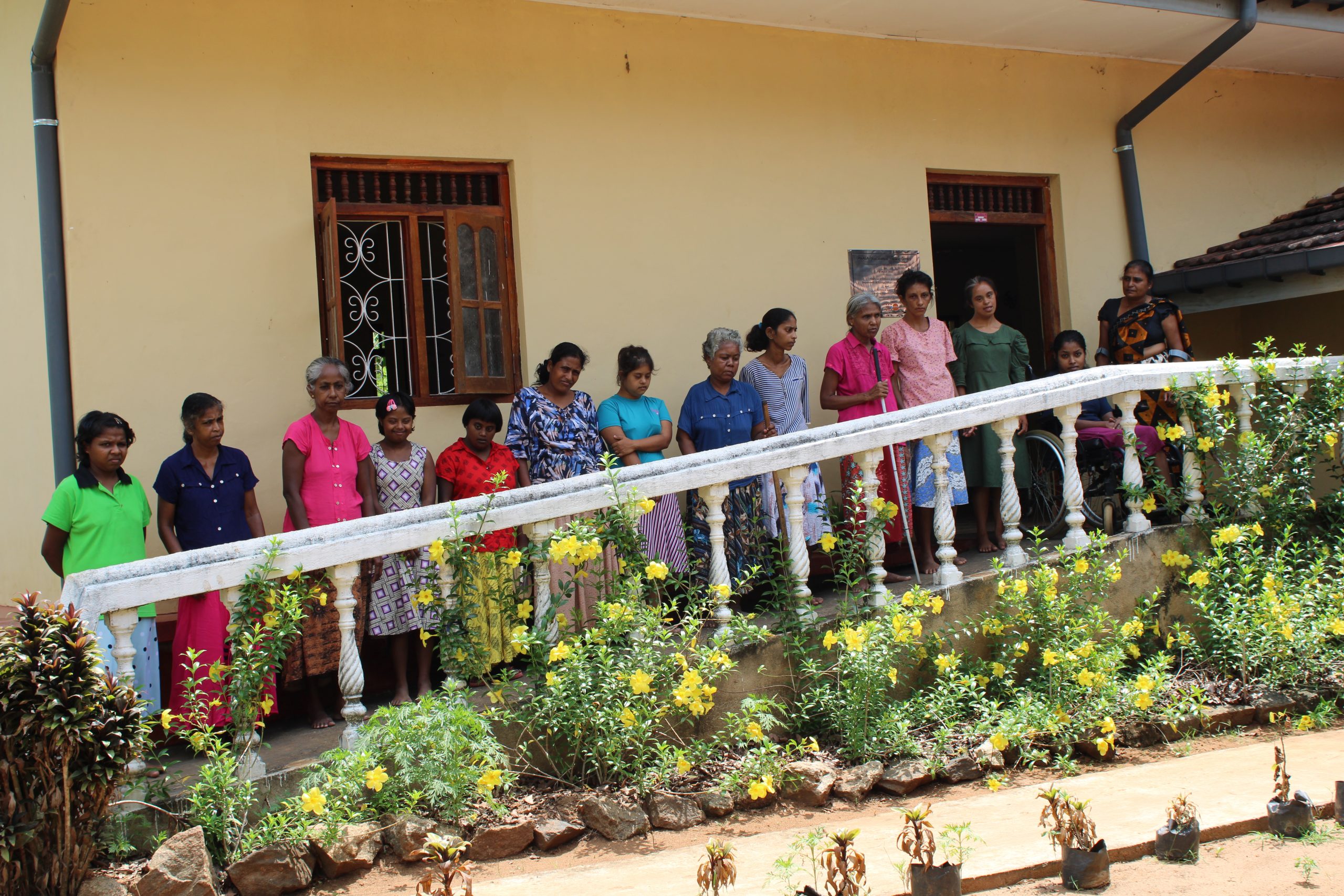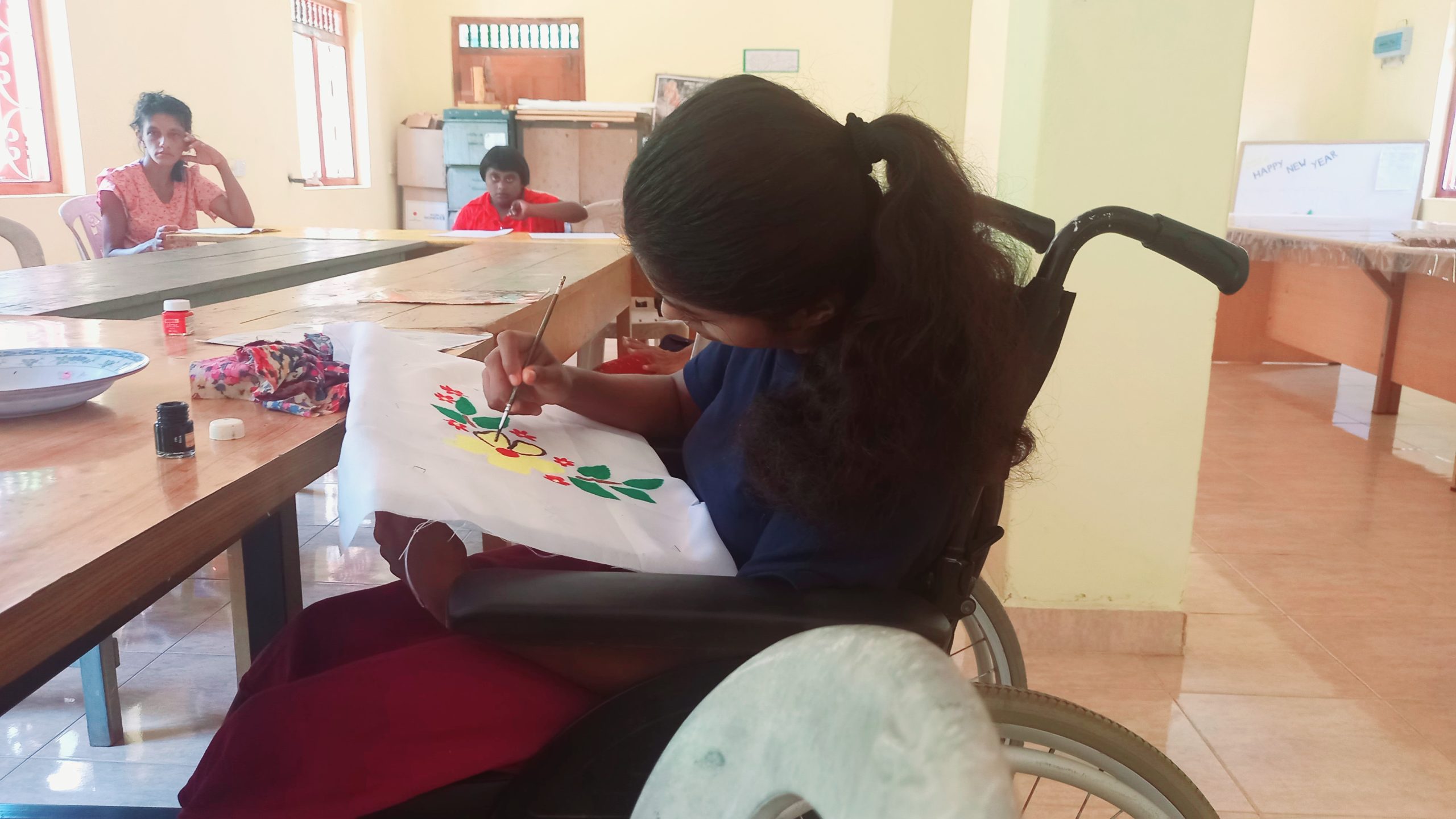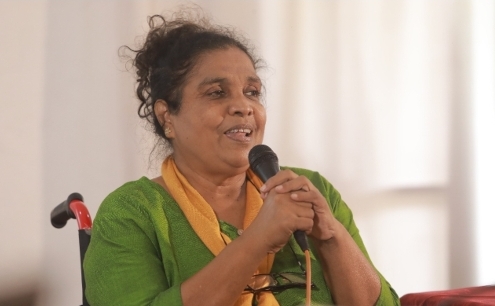About Us


A Collective of Visionaries, United for Empowerment & Inclusion
At Akasa, we are a compassionate assembly of advocates, innovators, and allies fervently committed to the empowerment of women with disabilities. We believe in harnessing the transformative power of education and economic development to foster independence and self-reliance. Our journey began in 1995, inspired by a vision of a society where disability does not dictate destiny, and every individual has equal opportunities for full participation.
est.
1995
A Quarter Century of Advocacy
3200
+
Empowered Members Strong & Growing
Inclusive Advocacy & Lasting Impact
Community-Driven Experts
Innovative Empowerment
Transparent Commitment
Focused on Women
Supportive Network
Empowerment through Education
About Founder

N.G. කමලාවතී
(ආකාස සංවිධානයේ සභාපතිනි)
Born in a low-income family in a rural background, NG Kamalawathy was a young woman who lived her life on crutches due to polio. She faced many obstacles and challenges in her life since childhood and struggled to find life from a young age. In 1984, in search of her independence, she went to Colombo in search of a job. She worked hard to create her own opportunities. Because of that she had to face various struggles.
She realized that many of the challenges faced by the disabled community in Sri Lanka were due to the negative attitudes of the government and society. She fought for it alone. But no one was there to hear her lonely voice. Although she understands that communication and access facilities are essential for the disabled community, she alone cannot make society understand this. That is why she gathered five other women with disabilities in 1989 and established the “Sri Lanka Handicapped Women’s Federation”
After attending the World Conference on Women held in Beijing in 1995, she was filled with new ideas
about mobilizing the organization. On December 30, 1995, AKASA was formed, reorganizing the old
federation. At that time there were 36 members.
At the time AKASA was founded, there were very few opportunities for the rights of persons with
disabilities in Sri Lanka. That is why she along with AKASA conducted a survey of projects and services
for the community with disabilities in Sri Lanka. The survey covered 10 Divisional Secretariats in
different provinces of the island, focusing particularly on areas where community-based projects have been implemented. The survey revealed that opportunities for granting rights are very rare. AKASA also realized that community participation, especially people with disabilities and their family members, has been neglected in the implementation of projects implemented by some other NGOs for marginalized
groups.
Women with disabilities in Sri Lanka were often confined to their homes, afforded more protection
than their families, but isolated by a stigmatized society. They had fewer opportunities for economic,
social or cultural participation in society and lacked a sense of self-worth. Change starts with self-belief.
AKASA initiated an intervention process, aimed at a drastic change in the attitudes and behavior of
women with disabilities and female members of families of persons with disabilities, and implemented
methods that empowered them to organize and demand their rights. The organization’s approach is to become a force for women with disabilities and to fill the perceived gap in access to services and participation by people with disabilities.
During 1997-1999, 371 mediators in 10 regional secretariats were trained by AKASA Institute. Initially all mediators were non-disabled women, but later, both disabled and non-disabled women were involved
as mediators. The mediators identified women with disabilities or women with family members with
disabilities, and talked with them and their families about opportunities that might be open to them.
Gradually this was opened up to men with disabilities and their families.
The survey revealed that the situation of people with disabilities has worsened in Anuradhapura
district, especially in war-affected villages. Therefore, AKASA decided to locate here and opened Talawa
Project Office on June 1, 1998. On the same day, a vocational training center for young women with disabilities was opened adjacent to the project office. The premises and buildings were donated by the then Minister of Social Services, Mr. Birty Premalal. The buildings were empty granaries and were
converted into offices and vocational training facilities with minimal resources. Since then, AKASA has become an association dedicated to the rights of the community with disabilities.